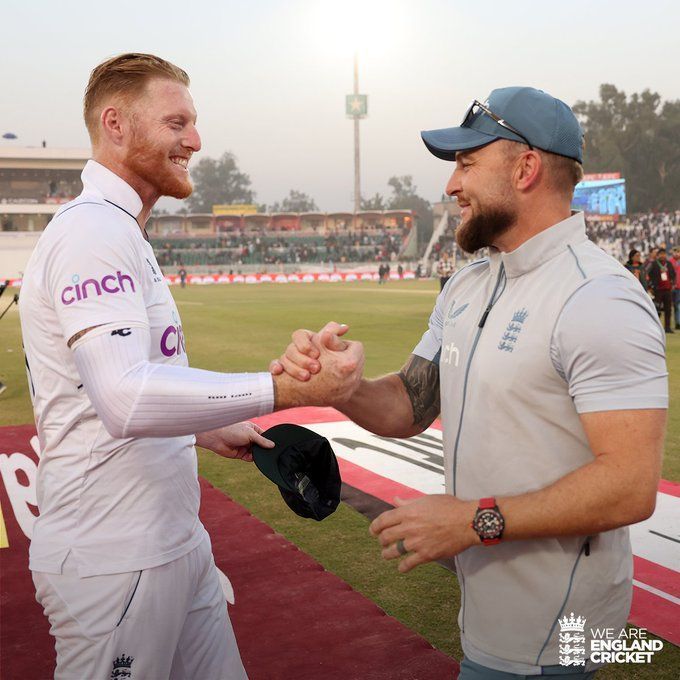
3 ways England are changing international cricket
England are making a serious attempt to redefine the way they play the sport. More specifically, they have taken an all-out aggressive route in Test cricket, having initiated their white-ball revolution under Eoin Morgan and Trevor Bayliss back in 2015.
The second of the two has seen them bag both the 2019 50-over World Cup and the 2022 T20 World Cup, becoming the first men's team to hold both trophies at the same time. With their Test side in the doldrums, though, the appointment of Ben Stokes as captain and Brendon McCullum as their coach in the format has brought about what is seen as a new era.
After a successful home summer, England took that aggressive brand to Pakistan and have laid down an early marker with a famous win. On a lifeless deck in Rawalpindi, the visitors left no stone unturned in making things happen and producing a result in their favor.
Conjecture is divided over whether they are potentially changing the way the sport is played, especially in Test cricket. Here's a look at three reasons as to how they possibly could be doing so:
#1 Could lead to a more aggressive brand of Test cricket
Let's make this very clear, this England team under Stokes and McCullum aren't the first team in history to play an attacking brand of cricket. A host of teams have done it over the decades gone by and there is absolutely no denying that.
Yet, for this particular era, they could be pioneers in how the format is played differently. Who would have thought of a score in excess of 500 runs on an opening day, never mind the surface being a benign one? Of course, the day conditions are more challenging, and the chances of such a thing materializing are bound to reduce.
Having said that, England are taking the game by the scruff of the neck under the Stokes-McCullum regime. If they sustain this against whatever opponent they come up against, irrespective of the conditions, other teams will inevitably have to match fire with fire and could adopt a similar counter-ploy.
Time will tell if this will go on to become habituated with Test cricket in general.
#2 Four-day Tests could become a common phenomenon
For a long time, the co-existence of Test cricket alongside the slam-bang frenzy nature of T20s has been a heated topic. The number of drawn Tests has come down in recent years and the World Test Championship has added a further incentive to the format.
Yet, the manner in which England are approaching the format could see a contest end well inside the scheduled timeline. Four-day Tests have been a topic of discussion as well over time but England's approach could see contests inevitably end within four days.
If that becomes the norm, with a relentless international calendar to cope with, there's a chance that four-day Tests could become a regular thing.
There are ifs and buts attached to it, but England's approach and a possible changed landscape could lead to serious thought being given to this.
#3 More multi-faceted players could develop
England picked a combination that had serious question marks looming over whether it could pick up 20 wickets to win a Test. They have been vindicated for having done so in Rawalpindi, although time will throw further light on its sustainability.
Yet, their high-risk approach calls for a bigger cushion for a higher rate of success. To put things into further perspective, bowlers who can be more than a handful with the bat could see a high-scoring rate maintained without the worry of not having enough ammunition in the shed.
This could automatically result in more bowling all-rounders and open up the team to more options should this template be followed. England's head-on approach towards Test cricket could see players from other teams take inspiration and follow suit.
After all, this is bound to raise their stock in white-ball cricket too, should that happen.
Do you think England's new brand of cricket could change the way the sport is played? Let us know in the comments section below!
Also read: 3 attributes Jasprit Bumrah will add to the Indian team when he returns

